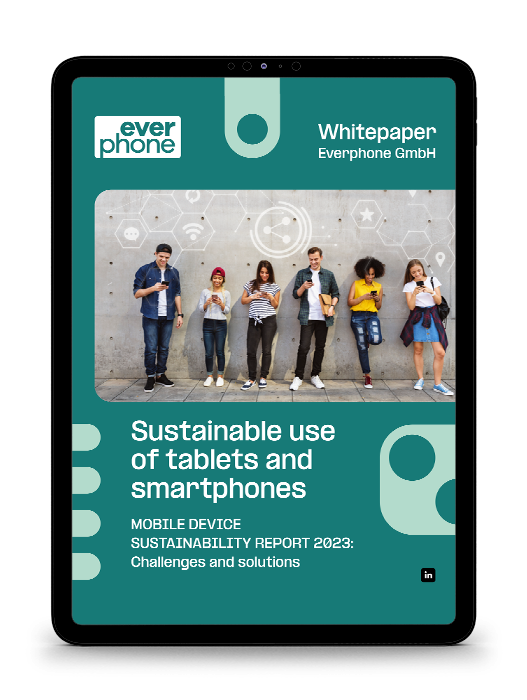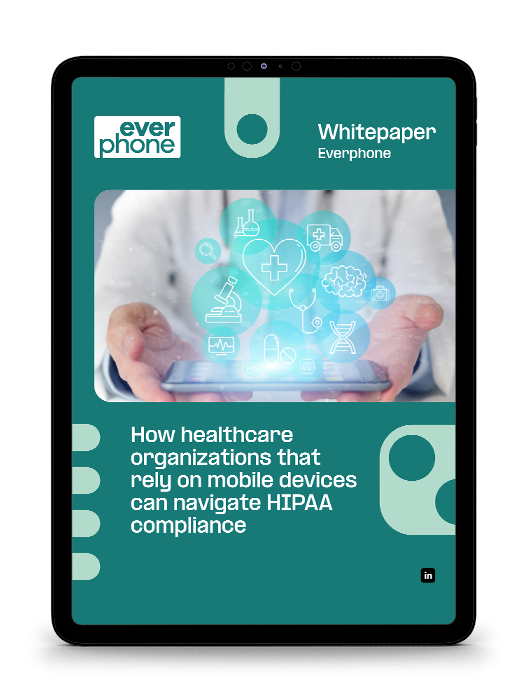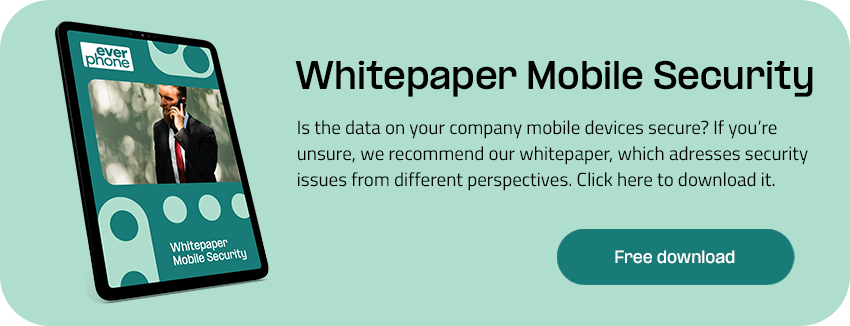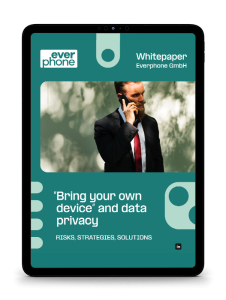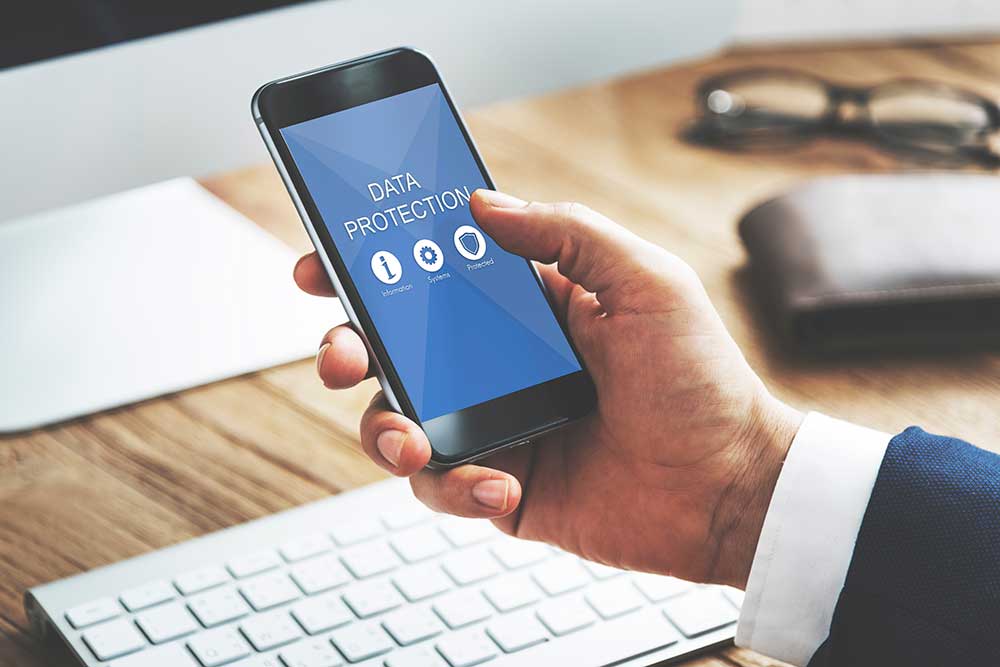We all have mobiles; we use them every day. But how often do you consider phone security? Mobiles are incredible. With one device, we can work, shop, keep in touch with friends and family, order groceries, read news, connect with people on social media, pay bills, manage finances… the list goes on.
But this convenience comes at a cost. Our mobile devices are full of sensitive information about us in the form of data – that includes everything from personal and financial details to work-related communication.
Why does mobile security matter?
Because mobile devices are now a prime target for hackers. Recent years have seen a spike in mobile malware attacks, and more and more threats and risks to mobile security are emerging daily.
Plus, with more of us working remotely, insecure work mobiles are also an increasing threat for companies. As a result, mobile security is set to become one of the biggest IT career fields as companies race to find solutions to these emerging issues.
The worrying thing is most people don’t know the first thing about mobile security. It’s a complex topic and keeping on top of it takes work, but now, more than ever, businesses, employees, and individuals should all prioritize phone security.
This article will explore why mobile security is so essential today, the major threats to your device, and how to safeguard against them.
What is mobile security?
Mobile security is a branch of cybersecurity relating specifically to mobile devices. It’s how you protect your mobile devices from unauthorized access, use, or modification.
Mobiles are vulnerable to cyber threats in various ways, so there are a few aspects of mobile security that must be considered, including the following:
- Device security:
Protecting the device itself from being stolen and used to access the owner’s information. This includes practices like using a strong password or PIN and enabling two-factor authentication. - Data security:
Protecting the data stored on the device, whether that’s personal, financial, or work-related. It’s crucial to encrypt your data and back it up. Using services like a VNC viewer make this much easier. - Application security:
Protecting the apps installed on the device from malware and other threats. This involves making sure you only download apps from trusted sources, read reviews before downloading, and be careful about the permissions you grant to apps. - Network security: Protecting the device when it’s connected to a network, such as a Wi-Fi or cellular network. This is why it’s essential to be careful when using public wifi networks and use a mobile VPN.
Why are cyber threats to mobiles on the rise in 2023?
There are a few reasons why cyber threats are becoming increasingly common.
Mobiles are the ideal target for hackers
They’re constantly connected to the internet, which makes them vulnerable to attack. In addition, they’re often used in public places where they’re easily accessed by hackers. They also store huge amounts of sensitive data on their users, so they’re a hugely valuable target.
Another driving factor is a lack of mobile security awareness. Most people don’t know the difference between data privacy vs security. This means mobiles aren’t just a fruitful target for hackers, they’re easy prey.
Finally, hacking tools are becoming more easily available over the internet and are being used to produce more advanced malware. This means there are more damaging, harder-to-detect threats out there, so protecting yourself against them is becoming more difficult.

What are the biggest threats to mobile security?
There are several things to watch out for to protect your phone from cyber crime. True, you can’t keep up to date with every new tactic hackers are using. But it’s worth knowing the basics.
Here are some of the most common risks to mobile security today.
- Data theft and breeches:
When sensitive data is stolen from a computer or smartphone, the information can then be used for identity theft or fraud. ‘Data breaches’ typically refer to information stolen from organizations or corporations. ‘Data theft’ is when the same happens to an individual. - Malware infection:
Malware is software designed to harm or disable a computer or mobile device. Malware can be installed on a mobile through malicious apps, websites, or text messages. Once installed, it can be used to steal data, take control of the device, or spy on the user. - Phishing:
Phishing occurs when hackers send fraudulent emails or messages that look like they’re from legitimate people or businesses. The purpose is to trick someone into clicking a malicious link or handing over personal information.
Many overlook phishing as a threat as some are easy to spot. However, more sophisticated scams can be very convincing, including personal information the hackers have already gathered. Take note: 92% of organizations fell victim to phishing in the past 12 months. - Insecure Wi-Fi networks:
Insecure Wi-Fi is a common way for hackers to gain access to mobile devices. Hackers can intercept data transmitted over an insecure network, including passwords, credit card numbers, and other sensitive information.
To protect your mobile device while using public Wi-Fi, it’s recommended to use a secure Android VPN that encrypts your internet connection and ensures your data remains secure.
- Lost or stolen devices:
When a mobile goes missing or is stolen, your data is at risk of being stolen, too. This is easily prevented yet still common since so few realize the importance of mobile security. - Weak and recycled passwords:
This is one of the most common vulnerabilities. We all have numerous platforms and devices that we log into each day. So it’s tempting to use short, simple, and easily remembered passwords. But be warned: weak passwords put your device at increased risk.
If your password is straightforward, it could be easily guessed by hackers. The threat increases when the same password is used for more than one service or device. A huge amount of data theft occurs due to poor password hygiene. - Insecure apps:
There are a surprising amount of insecure apps available on app stores. More notably, there are many on the market with questionable security practices as well as malicious ones specifically designed to spread viruses. These apps can contain malware or vulnerabilities that can be exploited by hackers.
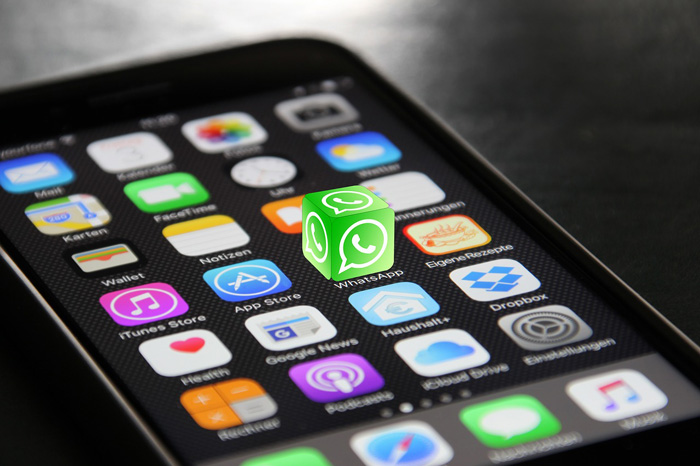
How to keep your mobile devices safe
With so many threats to mobile security, you might be tempted to move away from a smartphone, only use a work mobile, or even ditch the phone altogether.
Before you do, there are plenty of simple steps that can go a long way to protecting data on your device.
Measures like using strong passwords and enabling two-factor authentication or facial recognition are easy to implement and make the world of difference. Here are some other mobile security practices to put in place:
- Be careful what you click on.
Watch out for phishing scams as these are becoming increasingly sophisticated and convincingly mimic trustworthy sites and organizations. If you receive a text or email from someone you don’t know, don’t click on any links. They could lead to malicious websites designed to infect your phone with malware.
Check for SSL certificates on the websites you browse on your mobile too. Most browsers will show a locked padlock next to the HTTPS address if a website is secure. On that note, if you’re setting up your own website, find a domain names check service that provides SSL certificates. - Use a mobile security app.
This is the quickest, simplest way to keep your phone protected. There are dozens of mobile security apps available under the name of Mobile Threat Defense. These scan your device for malware, block malicious websites, and keep your device up to date with the latest security patches. They essentially do the legwork for you – easy. - Keep your device up to date.
Don’t keep clicking ‘remind me later’ on those update notifications. Install all of the latest security patches for your device as these will help to protect your phone from newly-emerging threats and vulnerabilities. - Be careful about what you download.
Only downloading apps from trusted sources is a good start, but there are many apps on the market with unreliable security practices. If you are unsure about an app, check reviews and do a quick Google search to see if anyone has reported problems in the past. Professional developers will run mobile application testing regularly to monitor and fix bugs as soon as they occur, providing another layer of security. - Be careful when accessing devices remotely.
The rise of remote workers and the Internet of Things has led to a new weak spot for hackers to take advantage of. Remote workers send work-related information across the internet from all sorts of locations every day. This can easily leave companies vulnerable to cyberattack. People who have their phone connected to multiple devices around the house (laptops, smart TVs, etc) expose themselves to the same risk.
Our advice: don’t leave it up to chance. Invest in a VNC server like RealVNC’s remote desktop software that’s compatible with multiple platforms and has strong network security.
Getting to grips with mobile security
If this is your first step into the world of mobile security, congratulations! But this really is just the first step.
Educating yourself on mobile security is challenging, and keeping up-to-date with an ever-evolving digital landscape is equally challenging. But, it is critical that both businesses and individuals start developing better mobile security practices today.
The threats to mobile devices will only increase as the role they play in our life continues to evolve.
[Transparency notice: This guest article was provided by one of our content partners.]



